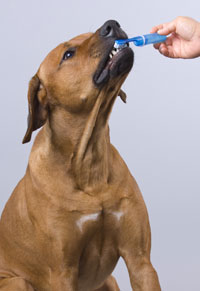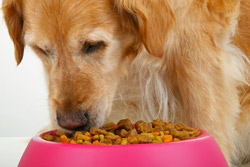Dental disease is the most common disease in dogs and cats. By age three 80% of dogs and 70% of cats have some form of dental disease. The good news is it is completely preventable! By providing home dental for your pet as well as regular veterinary oral exams and teeth cleaning by your veterinarian you can help prevent the progression of dental disease. Here at Callbeck Animal Hospital we are fully equipped and qualified to provide a superb level of dental care.
Dental Cleanings Include:
- Physical exam morning of surgery
- Pre-operative blood panel
- IV fluids during surgery and post-op
- Digital dental radiographs
- Pain management (injections, local blocks, medication to go home if needed)
- Antibiotics if needed
- Nail trim
- Dental Cleaning (ultrasonic scaling, hand scaling and polishing)
- Oral charting and probing
- Anesthesia monitoring
- Hospitalization
- Dental Report to go home
- Post-operative oral exam 2 weeks later with a dental diet sample, free toothbrush/sample toothpaste and dental home care plan that works for you and your pet
Signs of oral or dental disease in pets:
- Bad breath (halitosis)
- Broken tooth/teeth
- Excessive drooling
- Red or swollen gums
- Reluctance to eat, especially dry food, or to play with chew toys
- Chewing with or favouring one side of the mouth
- Pawing at or rubbing the muzzle/mouth
- Bleeding from the mouth
- Loss of symmetry of the muzzle and/or lower jaw
- Swollen/draining tracts under (or in front of) the eye
- Sudden change in behaviour (aggressive or withdrawn)
- Chronic eye infections or drainage with no exact cause or cure
- Inability to open or close the mouth
- Chronic sneezing
- Discolored tooth/teeth
- Abnormal discharge from nose
- A mass/growth in the mouth
We have a dental payment plan available! Please contact the clinic for details.
Please call us at (905)438-1144 if you have any questions or to schedule your pets oral examine today!



